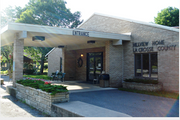Why Is It Important for Seniors to Manage Medication Properly?

Prescription drug use is a common practice among senior citizens, with many used to taking at least one medication daily. In fact, recent research suggests that nearly a third of those 60 or older are estimated to have five or more prescriptions. While these treatments offer incredible health benefits, these drugs can also have serious side effects if they are used inappropriately. To illustrate the importance of proper medication management within elderly care, here are a few risks you should be aware of—and how they can be prevented.
How Can Medication Mismanagement Impact Elderly Care?
Diabetes, asthma, and high blood pressure are among many of the chronic diseases that modern seniors face. Fortunately, many of the risks of these diseases can be minimized with the use of maintenance medications. However, those who suffer from memory loss or other disabilities may forget to take medications. When this happens, they may develop serious and potentially life-threatening complications related to their chronic illness.
 Also, when a drug is in a person’s system, it may cause others to work improperly. In some cases, certain medications may interact negatively and create hazardous symptoms in the individual. For this reason, doctors must keep careful track of the medications they prescribe and provide clear instructions. Patients must make sure to follow these directions exactly to ensure treatments are working effectively and safely.
Also, when a drug is in a person’s system, it may cause others to work improperly. In some cases, certain medications may interact negatively and create hazardous symptoms in the individual. For this reason, doctors must keep careful track of the medications they prescribe and provide clear instructions. Patients must make sure to follow these directions exactly to ensure treatments are working effectively and safely.
Anti-anxiety medications, sleep aids, and opioids are among the many drugs that can help seniors feel healthy in their daily lives. Despite these benefits, these medications can become addictive if taken improperly. Others may find that these medications can create health problems if combined with alcohol. With nearly one million seniors estimated to suffer from substance use disorder, it is critical to monitor use of high-risk medications.
How Can You Improve Management Among Seniors?
There are several steps you can take to ensure your loved one is taking their medications in a safe fashion. For example, using a pill organizer can help make sure they are getting all of their doses at the right time. To avoid mistakes, it’s also important that instructions are clearly labeled on the prescription bottle.
If your loved one is disabled or has a form of dementia, elderly care professionals can also be an instrumental resource. Skilled nursing professionals and assisted living centers, for instance, will closely monitor medications so they are delivered on a regular basis. As health care professionals, they can also help take the appropriate actions if any drugs are causing medical problems.
If you have concerns about your loved one’s daily health needs, Hillview HealthCare offers compassionate assistance. Staffed with skilled nursing professionals, these senior housing centers of La Crosse, WI, will administer medications as directed and provide daily personal care and companionship to support your loved one’s well-being. To learn more about these elderly care services, visit them online or call (608)789-4800.
About the Business
Have a question? Ask the experts!
Send your question

